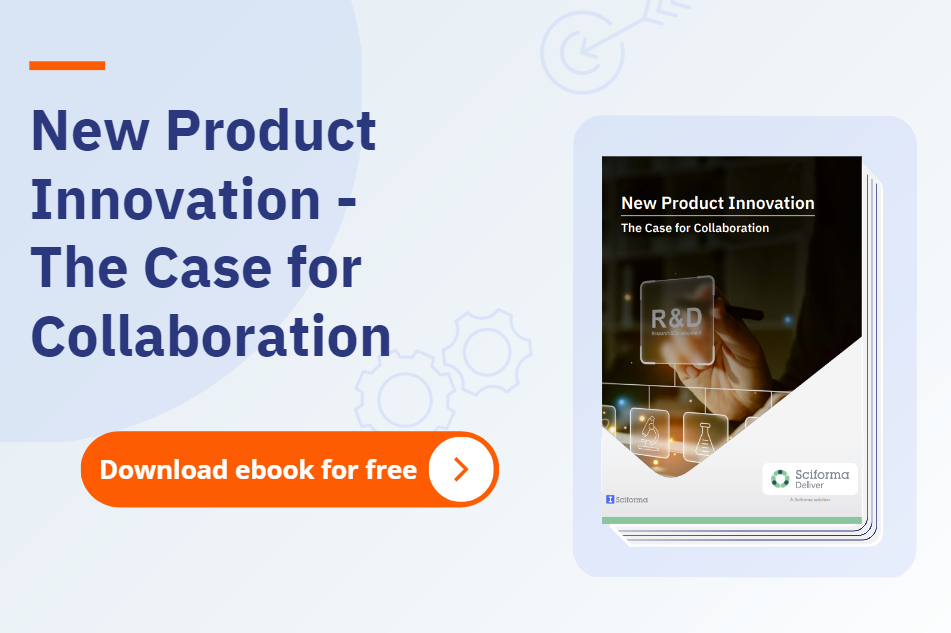McKinsey reports that more than 25% of total company revenues and profits across all industries come from the introduction of new products or services. Innovating in business is, therefore, essential. Companies understand this and are investing massively in their R&D departments to offer their customers products and services that are ever closer to their expectations. Estimates today claim more than $1,500B is invested in R&D each year worldwide—equivalent to Canada’s GDP.
Innovating for success in a rapidly changing environment
Product innovation is essential for a company’s success, yet it takes place in a complex and uncertain economic context. Between the emergence of new players, new technologies, digital transformation, and periods of growth and crisis, all companies, large or small, need to stand out and innovate. If for nothing else, this is to ensure their survival. Gallup predicts that by 2027, the average life span of companies listed on the S&P500 (the index of the 500 largest publicly traded companies in the United States) will be only 12 years. Further, they predict about half will be replaced within ten years.
This uncertain context is a powerful driver of innovation. Faced with these challenges, companies must adapt quickly or die. As a result, corporate strategies turn to shorter-term projects or ideas that can be profitable quickly.
Innovating in business to face crises
The effects of the pandemic on companies’ innovation strategies
The COVID-19 pandemic has accelerated the digitalization of all services and has made customer experience a top priority for companies, according to KPMG. It is now estimated that the pandemic, initially perceived as a punctual change, will leave its lasting mark on markets and company organizations for at least the next five years.
The pandemic has had an ambivalent effect on business innovation. On one hand, it has increased interest in innovation and highlighted innovation as a necessity for business survival. On the other hand, the consequences of the pandemic limit room for companies to maneuver in terms of innovation, forcing them to do more, better, but with less. In this context, KPMG observes that innovation strategies in the wake of the pandemic tend to be oriented towards short-term, incremental innovations that are expected to bring quick results. At the same time, more disruptive innovation projects are in decline.
Learn more about product innovation by downloading our free ebook
Many companies have announced that they are cutting back on innovation projects. The consumer goods industry has been hit particularly hard by the pandemic, but it could also mark a new era for the sector. Prior to the pandemic, new product performance was in steep decline after the first year, and the majority of launches were for low-value products. The post-Covid era may see fewer innovations that are more in line with consumer expectations.
However, these consumer expectations remain difficult to predict. Many executives told McKinsey that they are dealing with changing consumer preferences and behaviors.
Innovate to seize growth opportunities
Today the world faces many crises: the COVID-19 pandemic, financial crises, climate crises, political crises, on and on. This is not the ideal environment to encourage innovation within companies. As mentioned above, times of crisis tend to cause companies to reduce, rather than invest in, their innovation pipeline. However, while times of crisis are challenging for companies, they do create new opportunities for growth.
Indeed, McKinsey shows that this is the most critical time to invest. They found that companies that invest in innovation in times of crisis perform significantly better than their competitors, gaining on average 10% in market capitalization. Even better, investments after the crisis bring a 30% advantage! Investing in times of crisis has allowed companies to emerge stronger and ahead of the market and to accelerate their growth in the three to five years following the crisis.
A boost for your innovation
The right tool can make the difference and accelerate innovation processes. Sciforma Deliver’s New Product Innovation solution provides one central platform for all of your projects, data, and processes, and simplifies them through automation.
Discover more about the Sciforma Deliver solution by requesting a customizable demo below.
Read more about PPM:
- Reconciling The Strength Of Unity And The Strength Of Diversity
- How CSR and ESG Commitments Can Accelerate Your Business
- Agility: Nature or Nurture?







